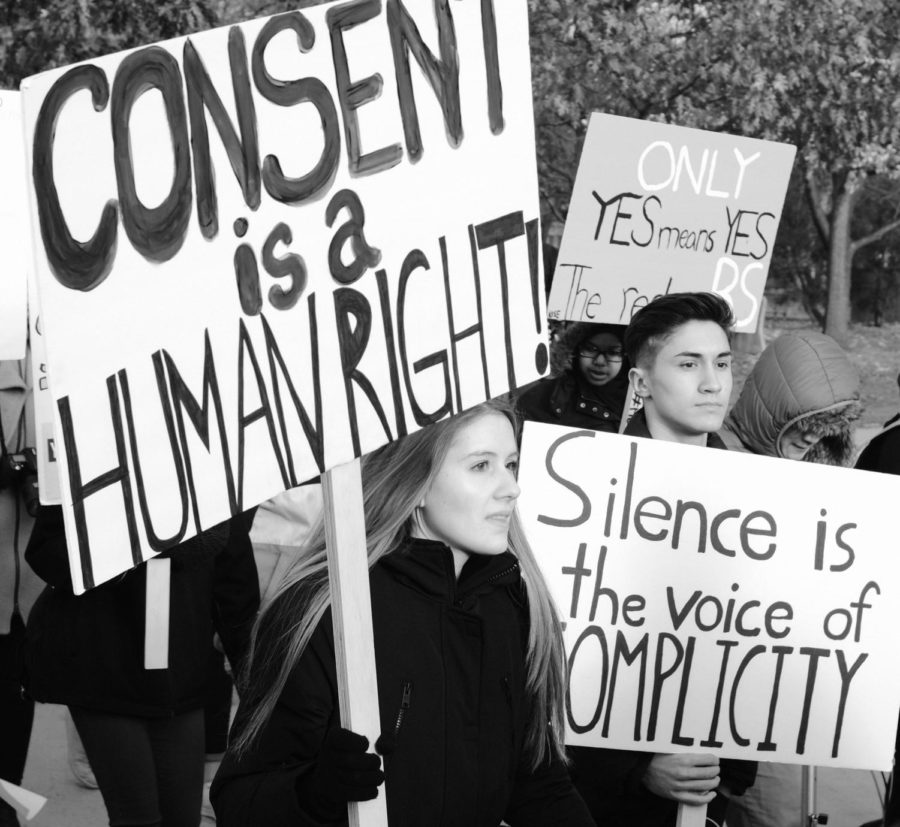Consent is not a Difficult Concept for People to Respect
Consent is a human right Source: Glen Canning
January 10, 2019
Warning: This article addresses the topic of rape. Please reach out to your CHS counselor if you are a survivor.
Consent; the Merriam Webster Dictionary defines it as the action of giving assent or approval: agreeing. According to the Rape, Abuse, Incest National Network, every ninety seconds an American is sexually assaulted, and every eight minutes the victim is under that age of twelve.
You would think with such high numbers there would be more convicted offenders, but only about six out of every thousand perpetrator will end up facing time in prison.
Recently, what consent means is being questioned in court. It’s a very simple answer; It’s clear and unambiguous verbal agreement given in a mindful state saying there is a mutual agreement and understanding of the sexual action(s) that may proceed. Consent is not something that can just be assumed. Things such as body language, flirtatious behaviors, physical appearance, non-verbal communications, previous sexual encounters, being in a relationship/marriage, silence, lack of resistance, immobility, intoxication, or passivity are not consent.
There is more to the problem then just the misinterpretation of consent. As much as we are slowly improving we still live in a patriarchal society where the dominant gender is calling the shots. We continuously victimize the women as if it’s their fault when they are sexually assaulted. Instead of saying women are assaulted by men why aren’t we saying men assault women?
On the evening of September 7th 2002, Lindsay Armstrong, 17, was raper by a 15 year old boy she knew in a park near her home in Scotland.
During the trail, Lindsay was forced to hold her lace thong up three separate times, reading the slogan on the front which said ‘Little Devil’. Lindsay had committed suicide just three weeks afterwards. Lindsay can be quoted saying, “I felt like I was being raped all over again.”
During that trial, defense attorney Elizabeth O’Connell told the members of the jury that they needed to take into consideration the way she was dressed, she had been wearing a thong with a lace front at the time of her rape. Lindsay Armstrong’s mother hearing about this was appalled and thousands of women have taken it to twitter to protest this unfair use of women’s clothing in rape cases as evidence of “consent.”
Another factor brought up in the trial is the belief that the victim must fight back in the moment. Lindsay did not fight back and that moment was used against her.
Being someone who has been personally affected by the misinterpretation of consent, I know that you can dress however you’d like to, freeze in response and still not have consented to the sexual intercourse that occurred.
Statistically speaking, all of us have or will be impacted by the concept of consent. It is time to stand up for those impacted and it is time to stand firm about the need for respect. A compromised ability to make decisions is solely on the actions of the aggressor.
Consent looks like both participants having a verbal agreement on what sexual activities will occur, it is not the way a person is dressed, their body language, physical appearance, silence or lack of resistance. This is common sense.


